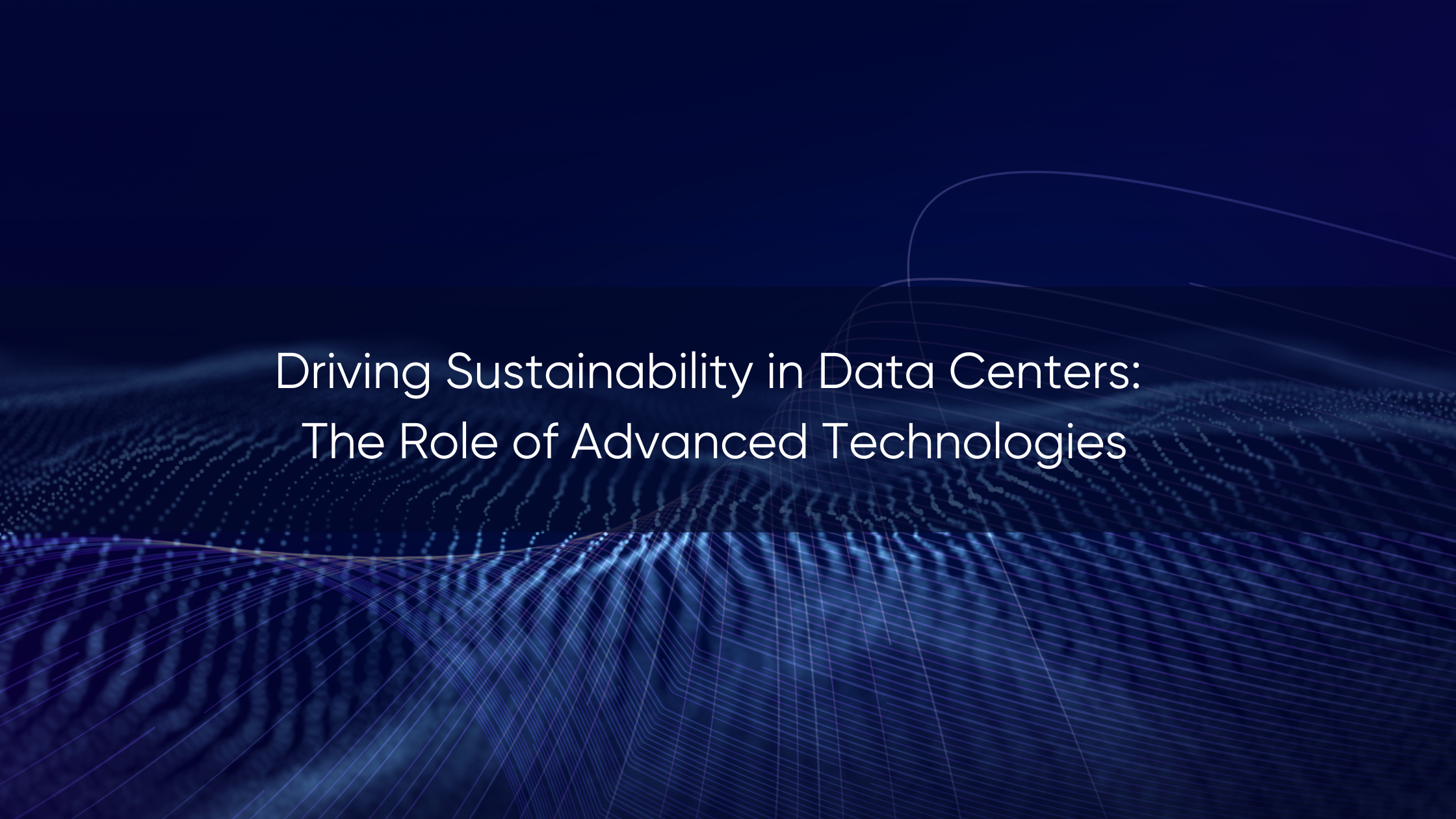Advancements in the tech industry are driving significant improvements in sustainability. With data centers consuming approximately 1.5% of the world's electricity, adopting sustainable practices is essential for companies and individuals committed to a greener future.
Introduction
Data centers are integral to modern digital infrastructure, housing vast amounts of data and supporting countless online services. However, their significant energy consumption poses sustainability challenges.
As the demand for digital services grows, so does the need for data centers to adopt more sustainable practices. This blog explores the latest trends in data center power, efficiency and sustainability, offering insights into advanced cooling solutions, renewable energy adoption, and the role of AI in optimizing data center operations.
“So, here’s the big question:
Will your existing architecture support capacity and density and still call itself a sustainable digital infrastructure? Can you keep up with the new imperatives of a constantly evolving digital market?”
— Bill Kleyman, Co-Founder of Apolo, poses an essential question for the industry.
The Importance of Power Efficiency in Data Centers
Data centers are notorious for their high energy consumption. In 2022, they accounted for about 18% of Ireland's total electricity use and are projected to reach 15% of Denmark's by 2030. This significant energy footprint highlights the urgent need for more efficient energy use and management.
In fact, the global data center market is expected to reach $127.1 billion by the end of 2024. This is undoubtedly fueled by the surging demand for cloud services, big data, and AI applications. North America remains the largest market, but the Asia-Pacific region is experiencing the fastest growth due to rapid digitalization and the expansion of cloud services in countries like China and India.
Currently, there is a strong focus on developing hyperscale data centers, which are designed to rapidly and efficiently scale up computing capabilities. These data centers are essential for supporting large-scale digital services and applications, including streaming, online gaming, and enterprise cloud solutions.
Additionally, edge computing is gaining traction, enabling data processing closer to the data generation source, reducing latency, and enhancing real-time data processing capabilities.
Sustainability Trends and Innovations Driving Data Centre Efficiency
1. Advanced Cooling Solutions
One of the primary challenges in data center operations is cooling. Traditional air conditioning systems are energy-intensive, but innovative cooling solutions are emerging. Techniques such as liquid cooling, which uses a fluid to absorb and dissipate heat directly from the hardware, and free cooling, which utilizes ambient external air, are becoming more prevalent. These methods significantly reduce the energy required for cooling, enhancing overall efficiency.
2. Green Energy Adoption
Shifting towards renewable energy sources is a key trend. Many data centers are now powered by wind, solar, and other renewable resources. This not only reduces carbon emissions but also aligns with global sustainability goals. Companies like Google are leading the way, with Google pledging to operate on carbon-free energy by 2030.
3. Energy-Efficient Hardware
Modernizing data center infrastructure with energy-efficient hardware can significantly reduce power consumption. For example, using advanced cooling systems and energy-efficient servers helps in lowering energy use. The U.S. Department of Energy suggests that upgrading to more efficient equipment can reduce energy use by up to 40%.
4. Automation and AI
Implementing AI and machine learning for data center management can optimize energy use. AI can predict and manage workloads more efficiently, reducing unnecessary power consumption. According to a report by Gartner, AI in data centers can cut energy consumption by up to 30%.
5. Leveraging Data Analytics for Sustainability
Data analytics plays a pivotal role in driving sustainability efforts. By analyzing energy consumption patterns, data centers can identify inefficiencies and optimize operations. Predictive analytics helps in forecasting maintenance needs, preventing downtime, and extending the lifespan of equipment. This proactive approach ensures that data centers run smoothly and sustainably.
Real-World Applications and Case Studies
Google's data centers are among the most efficient in the world. By using AI to optimize cooling systems, they have achieved a 40% reduction in energy used for cooling. This initiative has saved millions in energy costs and significantly reduced their carbon footprint.
Additionally, Facebook's data centers in Prineville, Oregon, utilize a unique evaporative cooling system that uses 100% outside air. This system has made these data centers 38% more energy-efficient than the industry average.
Benefits of Sustainability in Data Centers
1. Cost Savings:
Implementing sustainable practices not only helps the environment but also reduces operational costs. Energy-efficient data centers can significantly cut electricity bills. For instance, a typical data center can save hundreds of thousands of dollars annually by optimizing energy use, which can give it a one-up on its competitors who may not be so conscious.
2. Market Advantage:
Companies with sustainable data practices are viewed more favorably by consumers and investors. This can enhance brand loyalty and attract eco-conscious customers and partners.
.svg)


